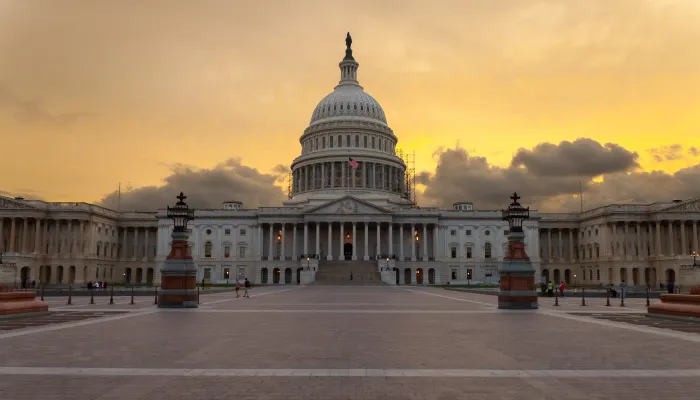CRFB Co-Chairs Gov. Daniels, Sec. Panetta, & Rep. Penny: Congress and President Must Make the Debt a Priority
Committee for a Responsible Federal Budget Co-Chairs Governor Mitch Daniels, Secretary Leon Panetta, and Congressman Tim Penny issued the following statement calling on Congress and the President to make addressing our national debt a priority:
The new Congress began with a partial government shutdown and a warning last week from the Congressional Budget Office: trillion-dollar deficits are coming. Neither party can afford to ignore the consequences of debt and failed leadership. Our nation’s red ink is headed toward record levels, with interest payments on course to exceed all spending on children or all federal Medicaid spending next year and match total defense spending by 2024. Our debt trajectory will crowd out important public priorities, slow wage growth, leave us less able to respond to the next recession, and increase the risks of a financial crisis.
Policymakers aren’t likely to fix this problem in the next two years, but for the good of the country, they must work together to begin that process. To that end, we encourage the new Congress and the President to do the following:
- Stop making the debt worse. Recent budget policy has been defined by deficit-financed tax cuts and spending increases. The new Congress cannot afford to continue nor escalate this trend. Policymakers should commit to offset any new tax cuts or spending increases with alternative savings or revenue. Budgeting must be about prioritizing, not about distributing gains and leaving future generations with the bill.
- Find common ground on deficit reduction. While much of the deficit reduction debate is highly polarized, there are areas where Democrats and Republicans can come together on behalf of the American people. For example, there appears to be broad agreement on the need to reduce prescription drug and other health care costs and to close loopholes under the new tax code. Policymakers should pursue these and other common-ground policy changes.
- Continue the work of the Joint Select Committee on Budget and Appropriations Process Reform (JSC). While the JSC was unable to pass recommendations last year, the package it voted on would have modestly improved the budget process, and its members made substantial progress in developing much more significant process reforms. The 116th Congress should continue and build upon this important work.
- Pass a budget cap deal. Under current law, sequester-level discretionary caps are scheduled to return next year, and budget caps end altogether in 2022. Congress and the President should agree to a budget deal that sets discretionary caps to reasonable and responsible levels, extends them into the future, and pays for any cost with mandatory savings or revenue.
- Agree to fiscal targets. While policymakers may not agree on how to address the unsustainable growth of our national debt, they should all agree we must do so. Setting a single fiscal goal – whether it involves reducing deficits to some level or holding debt to a share of GDP – can help lead to a more productive conversation about the tough choices that must be considered.
- Work to secure entitlement programs. With Social Security only 15 years from insolvency and federal health spending growing unsustainably, policymakers cannot afford to continue ignoring these programs. While it is not too late to enact a combination of gradual and targeted revenue and spending adjustments, time is running out to enact thoughtful solutions.
The debt will not be fixed overnight – any long-term solutions will require significantly slowing the growth of health care spending, making Social Security solvent, and cutting some of our largest tax breaks.
Members of both parties in the 116th Congress should work together to begin this effort.
###
For more information contact Patrick Newton, press secretary, at newton@crfb.org.


